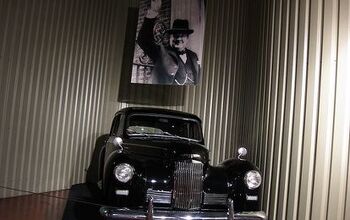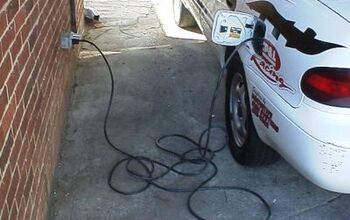Quote Of The Day: "Negative Reviews Are Good For Business" Edition
Like most corporate trends, the rush to social media is often little more than an opportunity for new consultants to sell common sense packaged in the buzzwords du jour. And though it’s easy to just laugh off the process as just another fad, it’s important to remember that common sense is in relatively short supply these days… if the only way to get it across is to punctuate it with words like “engagement” and “voice share,” so be it. And because social media is forcing companies to come to grips with every possible kind of feedback, the trend is actually helping validate the hard-hitting editorial approach that TTAC has long embraced. At Motor Trader’s social media conference, Richard Anson, CEO of the consumer review site Reevoo, explains the simple truth:
Social content will help drive sales so trust and transparency are vital; we all trust our peers more than any vendor or brand. Negative reviews are good for business. Retailing is all about transparency so perfection is not credible. Customers expect and want negative reviews and they give dealers a great opportunity to engage.
Hear, hear!
This is a lesson that the auto industry often struggles with, especially with in-house social media efforts like The Ford Story (now social.ford.com). But even within the larger automotive media scene, there’s a lack of appreciation for the constructive powers of negative reviews. Due to a long and pointless tradition in the automotive media of trying to objectively evaluate all vehicles on a single rating or “star system,” there’s a sense that negativity in a review implies that a car is not worth considering. In reality, if someone is going to own and live with a car, aren’t they going to be as interested in its flaws as its charms? Consumers aren’t stupid, and if they feel like they’re getting a whitewash from any one review outlet, they’ll look elsewhere. And thanks to the internet and “social media,” they’ve got lots of options.
More by Edward Niedermeyer
Latest Car Reviews
Read moreLatest Product Reviews
Read moreRecent Comments
- MaintenanceCosts Nobody here seems to acknowledge that there are multiple use cases for cars.Some people spend all their time driving all over the country and need every mile and minute of time savings. ICE cars are better for them right now.Some people only drive locally and fly when they travel. For them, there's probably a range number that works, and they don't really need more. For the uses for which we use our EV, that would be around 150 miles. The other thing about a low range requirement is it can make 120V charging viable. If you don't drive more than an average of about 40 miles/day, you can probably get enough electrons through a wall outlet. We spent over two years charging our Bolt only through 120V, while our house was getting rebuilt, and never had an issue.Those are extremes. There are all sorts of use cases in between, which probably represent the majority of drivers. For some users, what's needed is more range. But I think for most users, what's needed is better charging. Retrofit apartment garages like Tim's with 240V outlets at every spot. Install more L3 chargers in supermarket parking lots and alongside gas stations. Make chargers that work like Tesla Superchargers as ubiquitous as gas stations, and EV charging will not be an issue for most users.
- MaintenanceCosts I don't have an opinion on whether any one plant unionizing is the right answer, but the employees sure need to have the right to organize. Unions or the credible threat of unionization are the only thing, history has proven, that can keep employers honest. Without it, we've seen over and over, the employers have complete power over the workers and feel free to exploit the workers however they see fit. (And don't tell me "oh, the workers can just leave" - in an oligopolistic industry, working conditions quickly converge, and there's not another employer right around the corner.)
- Kjhkjlhkjhkljh kljhjkhjklhkjh [h3]Wake me up when it is a 1989 635Csi with a M88/3[/h3]
- BrandX "I can charge using the 240V outlets, sure, but it’s slow."No it's not. That's what all home chargers use - 240V.
- Jalop1991 does the odometer represent itself in an analog fashion? Will the numbers roll slowly and stop wherever, or do they just blink to the next number like any old boring modern car?






























Comments
Join the conversation
I think that negative reviews that are fair are good. But many reviews from print and online publications take extremes with their reviews. Jack Baruth covered this recently with the Sebring/200 reviews from a particular writer. I think finding fair reviews are much harder these days.
I think the way it is these days on most products is that we expect a minimum standard of competance. In 2011 we expect stuff to work and not break down whether it's a car or computer or camera. I would also think that people have some idea of what to expect... if you buy a Corvette you expect to have blistering speed, poor interior room and a bad Cobalt class fittings and poor fuel economy... so you need to see if you can live with the downsides while enjoying the upsides of which it has many. I agree with the above poster who says he looks at the negatives first. I love reviews that sums things up with the pros and cons. Look at the cons, see if you can live with them. Ignore the pros because you basically should know what they are depending on what kind of car you're looking at.